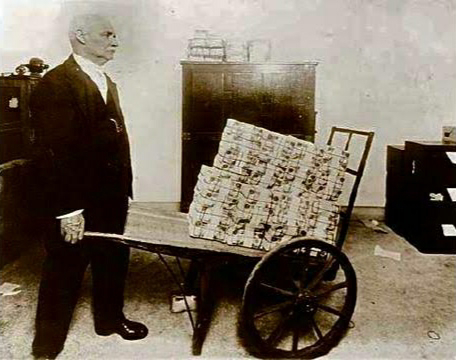Destruction of Democracy in Germany and the Start of Hitler's Dictatorship
In 1932, the Nazi party (National Socialist German Worker's party) had become the largest party with 37 per cent votes in Germany. On 30 January 1933, President Hindenburg offered the Chancellorship, the highest position in the cabinet of ministers, to Hitler. By now the Nazis had managed to rally the conservatives to their cause. Having acquired power, Hitler set out to dismantle the structures of democratic rule. A mysterious fire that broke out in the German Parliament building in February facilitated his move. The Fire Decree of 28 February 1933 indefinitely suspended civic rights like freedom of speech, press and assembly that had been guaranteed by the Weimar constitution. Then he turned on his archenemies, the Communists, most of whom were hurriedly packed off to the newly established concentration camps. The repression of the Communists was severe. Out of the surviving 6,808 arrest files of Duesseldorf, a small city of half a million population, 1,440 were those of Communists alone. They were, however, only one among the 52 types of victims persecuted by the Nazis across the country.
On 3 March 1933, the famous Enabling Act was passed. This Act established dictatorship in Germany. It gave Hitler all powers to sideline Parliament and rule by decree. All political parties and trade unions were banned except for the Nazi Party and its affiliates. The state established complete control over the economy, media, army and judiciary.
Special surveillance and security forces were created to control and order society in ways that the Nazis wanted. Apart from the already existing regular police in green uniform and the SA or the Storm Troopers, these included the Gestapo (secret state police), the SS (the protection squads), criminal police and the Security Service (SD). It was the extra-constitutional powers of these newly organised forces that gave the Nazi state its reputation as the most dreaded criminal state. People could now be detained in Gestapo torture chambers, rounded up and sent to concentration camps, deported at will or arrested without any legal procedures. The police forces acquired powers to rule with impunity.




Comments
Post a Comment